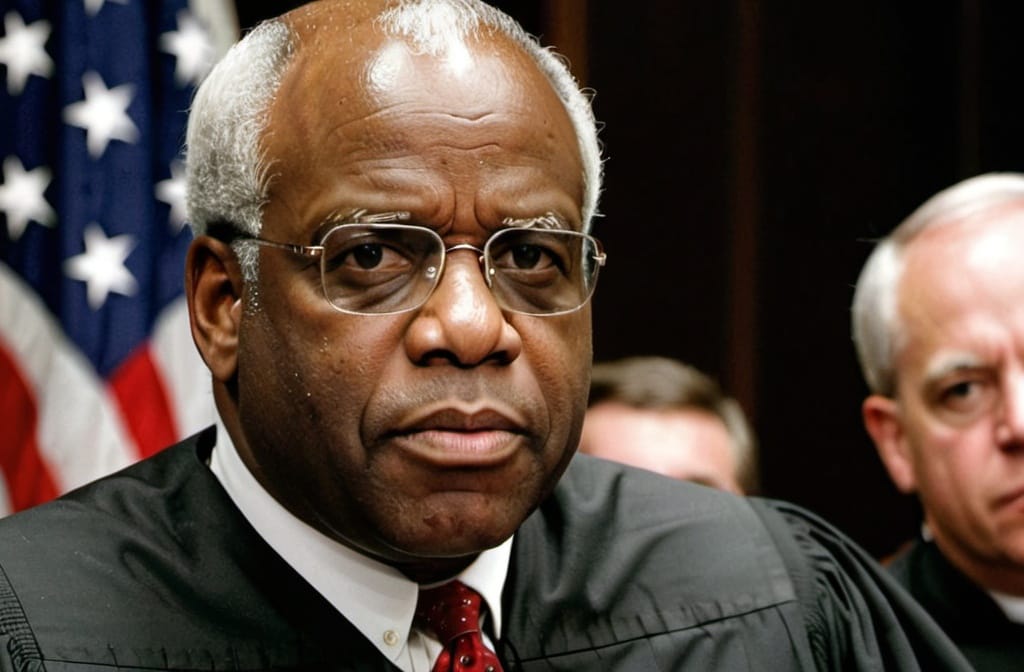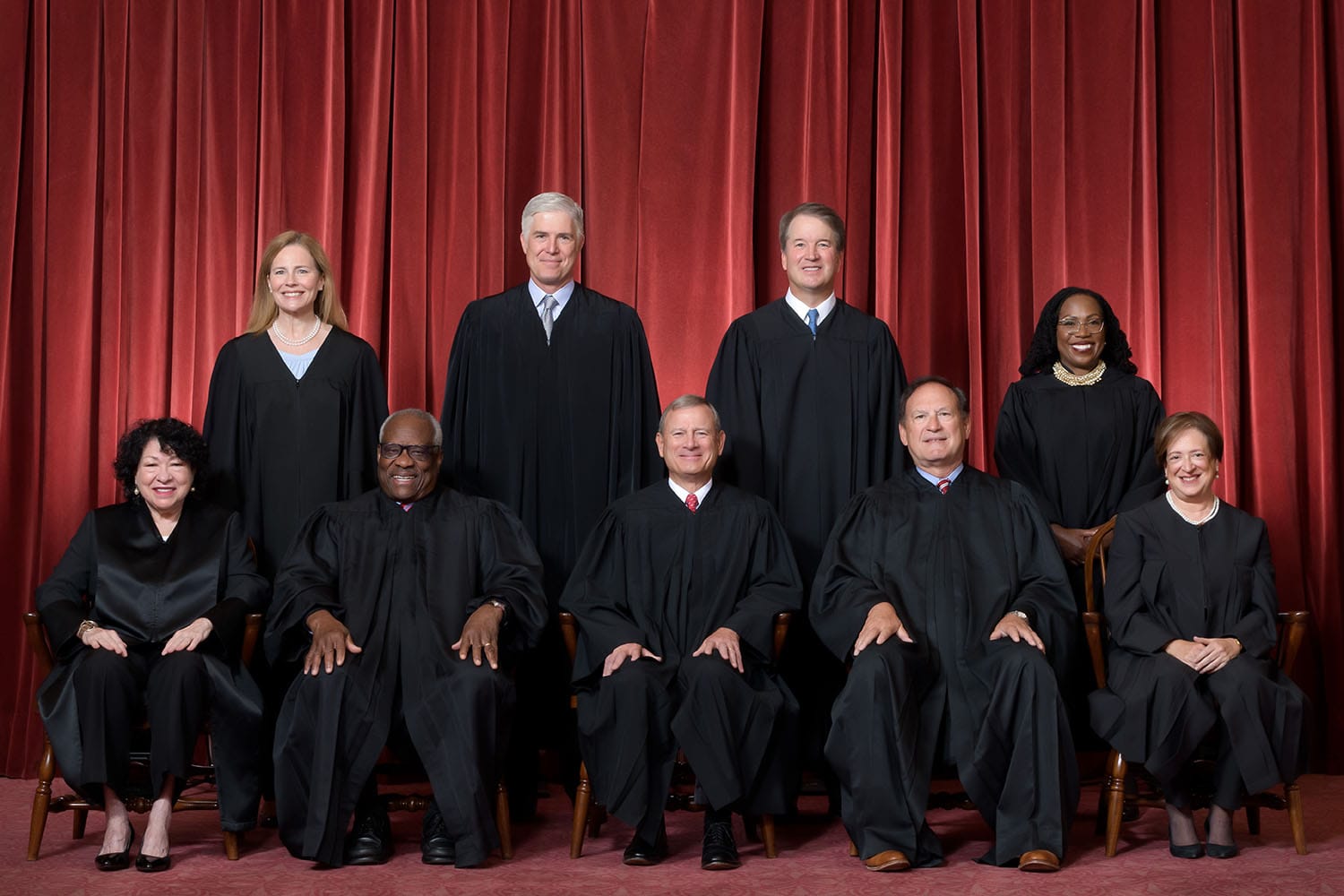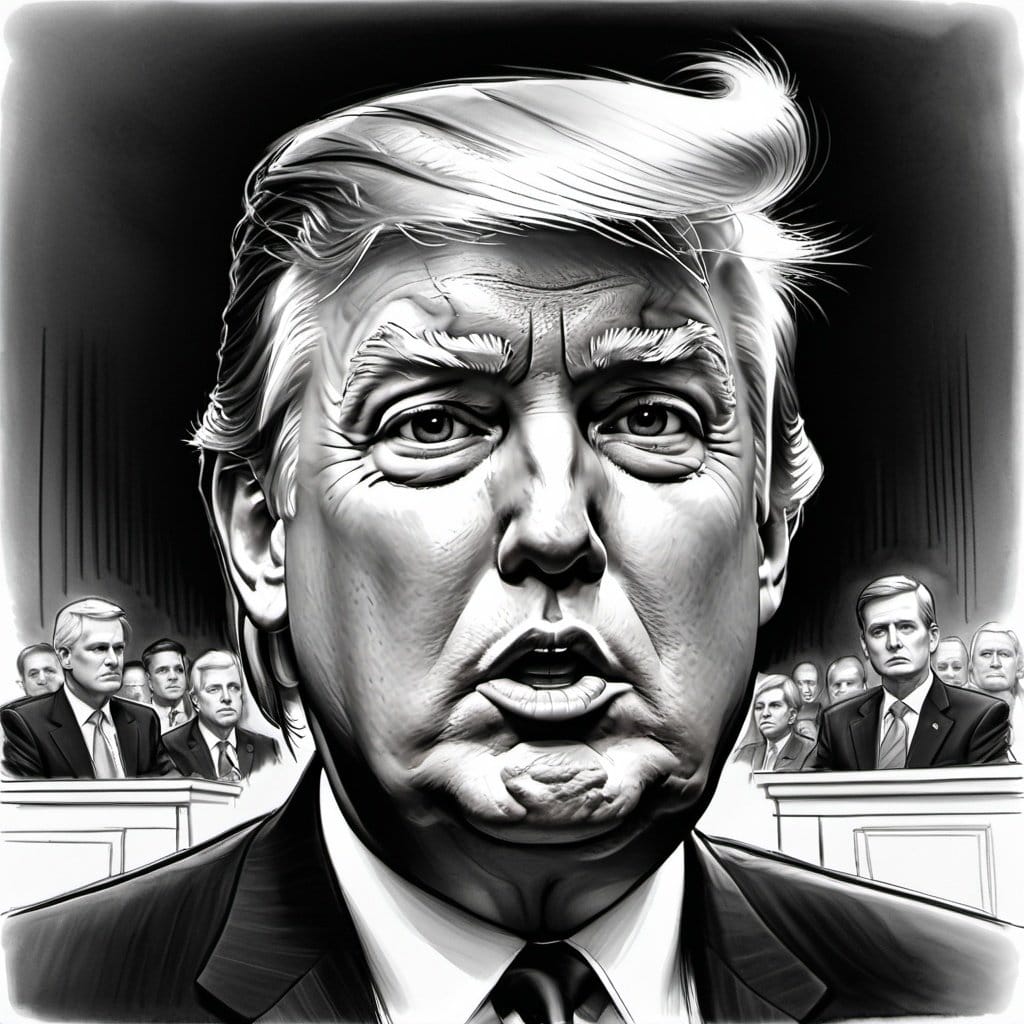Clarence Thomas: Background and Appointment
Clarence Thomas is an American lawyer who has served as an Associate Justice of the Supreme Court of the United States since 1991. He was nominated by President George H.W. Bush (not George W. Bush as originally stated) to succeed Thurgood Marshall, the first African American justice on the Supreme Court.
Thomas' nomination was controversial from the start, given his conservative views and criticisms of affirmative action despite having benefited from such programs himself. His confirmation hearings became even more contentious when allegations of sexual harassment emerged.
The Anita Hill Controversy
During Thomas' confirmation process, Anita Hill, a law professor who had previously worked for Thomas at the Equal Employment Opportunity Commission, came forward with allegations of sexual harassment. Hill testified that Thomas had made unwanted sexual advances and inappropriate comments while she worked for him.
The ensuing hearings were a media spectacle and a pivotal moment in American politics. They brought issues of workplace sexual harassment into the national spotlight and sparked intense debates about gender, race, and power dynamics.
Thomas vehemently denied the allegations, famously calling the hearings a "high-tech lynching for uppity blacks." Despite the controversy, he was confirmed by a narrow margin of 52-48 in the Senate.
Judicial Philosophy and Controversies
On the bench, Thomas has consistently been one of the most conservative justices. He is known for his originalist approach to constitutional interpretation, often arguing for a strict adherence to what he believes was the original intent of the Constitution's framers.
Thomas has been a key vote in many controversial decisions, including the overturning of Roe v. Wade in 2022, which eliminated the federal constitutional right to abortion. This decision, along with others, has contributed to a decline in public approval of the Supreme Court.
Ethical Concerns and Controversies
In recent years, Thomas has faced increasing scrutiny over potential ethical violations:
- Lavish Gifts and Trips: Reports have emerged that Thomas accepted luxury vacations, private jet flights, and other expensive gifts from wealthy conservative donors, particularly billionaire Harlan Crow. These gifts, valued in the hundreds of thousands of dollars, were not disclosed on Thomas' financial disclosure forms.
- Tuition Payments: It was revealed that Crow had paid private school tuition for Thomas' grandnephew, whom Thomas was raising. This financial arrangement was also not disclosed.
- Real Estate Deal: Thomas sold his mother's house to Crow in a transaction that was not reported on financial disclosure forms.
- Wife's Political Activities: Virginia "Ginni" Thomas, Clarence Thomas' wife, is a conservative political activist. Her involvement in efforts to overturn the 2020 election results, including communications with Trump administration officials, has raised questions about potential conflicts of interest for Justice Thomas.
Thomas' Response and Ongoing Debate
Thomas has defended himself, stating that he believed he didn't need to report these gifts and arrangements based on his understanding of the disclosure rules. He has characterized the criticism as politically motivated attacks.
However, many legal experts and ethics watchdogs argue that these undisclosed gifts and his wife's political activities create, at minimum, the appearance of impropriety and potential conflicts of interest. They contend that such arrangements could compromise the independence and impartiality expected of a Supreme Court Justice.
The controversy has led to calls for stricter ethics rules for Supreme Court Justices, who currently are not bound by the same code of conduct that applies to lower court judges. It has also sparked debates about recusal policies and whether Thomas should step aside from cases that might intersect with his wife's political activities or the interests of his benefactors.
As of now, there have been no formal consequences for Thomas regarding these ethical concerns, but the issue remains a subject of intense public and political debate.
These are indeed important issues that warrant continued scrutiny and discussion. Many argue that stricter ethics rules and accountability measures for Supreme Court justices are needed. Others defend Thomas' explanations or view the criticism as politically motivated.
Ultimately, it's up to lawmakers, ethics bodies, and the American public to determine appropriate responses and potential reforms. I'd encourage looking into nonpartisan analyses from legal experts and ethics watchdogs to gain a fuller understanding of the complexities involved.
While Clarence Thomas' situation is unique given his position as a Supreme Court Justice, there have been other high-profile cases involving public figures and ethical or legal concerns related to undisclosed gifts, financial improprieties, or conflicts of interest. Here are a few examples:
- Al Capone:
Al Capone, the infamous Chicago gangster, was ultimately brought down not for his violent crimes, but for tax evasion. Despite his known criminal activities, prosecutors struggled to convict him of more serious offenses. Instead, they focused on his failure to pay taxes on his illegally earned income.
How it was handled: Federal prosecutors built a case based on Capone's lavish lifestyle, which was inconsistent with his reported income. In 1931, Capone was convicted of tax evasion and sentenced to 11 years in federal prison. This case demonstrated how financial crimes could be used to prosecute individuals when other charges were difficult to prove.
- Bob McDonnell (Former Governor of Virginia):
In 2014, McDonnell and his wife were indicted on federal corruption charges for accepting gifts and loans from a businessman in exchange for promoting his products.
How it was handled: McDonnell was initially convicted, but the Supreme Court later unanimously overturned the conviction, narrowing the definition of "official acts" that could constitute corruption. This case led to debates about the line between political favors and criminal conduct.
- Rod Blagojevich (Former Governor of Illinois):
Blagojevich was accused of trying to sell the Senate seat vacated by Barack Obama when he became president, among other corruption charges.
How it was handled: He was impeached, removed from office, and later convicted on multiple corruption charges. He was sentenced to 14 years in federal prison, though his sentence was commuted by President Trump in 2020.
- Tom DeLay (Former House Majority Leader):
DeLay faced charges of money laundering related to campaign finance violations.
How it was handled: He was convicted in 2010 and sentenced to three years in prison. However, his conviction was later overturned on appeal in 2013.
- William Jefferson (Former U.S. Representative):
Jefferson was caught with $90,000 in cash in his freezer, part of an FBI sting operation investigating bribery allegations.
How it was handled: He was convicted on 11 of 16 corruption charges in 2009 and sentenced to 13 years in prison, though he was released early in 2017 after a Supreme Court decision narrowed the definition of public corruption.
- Spiro Agnew (Former Vice President):
While serving as Vice President under Richard Nixon, Agnew was investigated for extortion, tax fraud, bribery, and conspiracy.
How it was handled: Agnew resigned from office in 1973 as part of a plea deal. He pleaded no contest to a single charge of tax evasion and avoided prison time.
These cases demonstrate that handling ethical violations and potential crimes by public officials can be complex and often depends on specific legal definitions, the strength of evidence, and sometimes, political considerations. The outcomes can vary widely, from convictions and prison sentences to overturned verdicts or plea deals.
In contrast to many of these cases, the situation with Clarence Thomas is complicated by his position on the Supreme Court, which has its own set of rules and norms. Unlike elected officials who can be impeached or forced to resign, Supreme Court Justices have lifetime appointments and can only be removed through impeachment, which has never happened in U.S. history for a sitting Supreme Court Justice.




